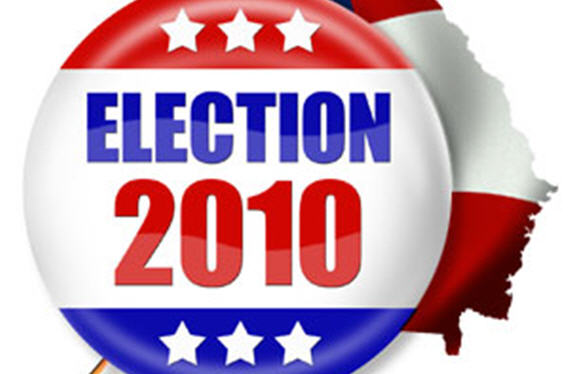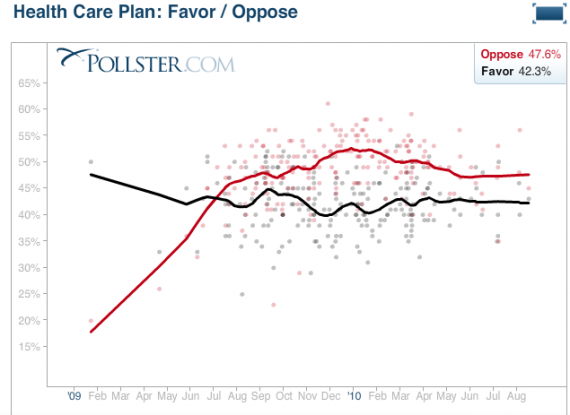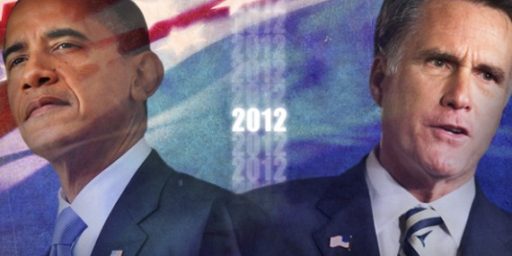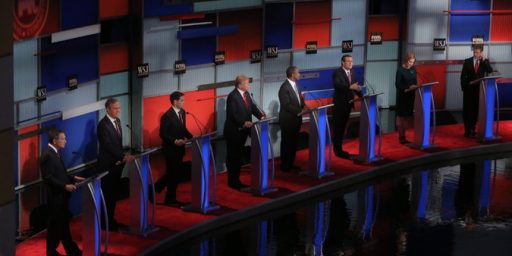Public Opinion On Health Care Reform Turning Negative Again
The perfect storm of a bad economy and a new, massive, unpopular government entitlement program may be combing to cause serious damage to Democrats in November.
More than five months after the Patient Protection and Affordable Care Act, known to it’s opponents as ObamaCare, was passed into law, the public remains as sharply divided on the law as it was when Congress voted on it.
A new poll shows that public support for health care reform dropped sharply in August — a dagger in Democrats’ hopes that their landmark legislation will help them in November’s midterm.
The Kaiser Health Tracking Poll has support for the bill dropping 7 percentage points in August — down to 43 percent — while opposition rose 10 points to 45 percent. That’s the weakest showing since May — and a far cry from the bump proponents had hoped to see as some of the law’s more consumer-friendly provisions kick in.
Democrats said throughout the year-long debate on Capitol Hill that support for the overhaul would increase once the bill passed and Americans were able to take advantage of some of its benefits. But it appears voters’ opinions of the legislation were set more firmly than anyone thought during the bruising political fight.
“Public opinion on health reform has been stuck in a fairly narrow band and is not changing dramatically,” said Drew Altman, president and CEO of the Kaiser Family Foundation. “And with concerns about the economy and jobs dominating the public’s agenda, and local issues always so important in midterm elections, it is not clear that health reform will play a significant role at the polls in November.”
This is actually fairly consistent with the polling trends going back to when the law was first being debated more than a year ago:
The real problem for Democrats, though, is that it looks as though health care reform will be on voter’s minds in November:
Respondents listed health care as the third most important factor in deciding how they’ll vote this fall — behind the economy and “dissatisfaction with government.”
Forty-two percent of respondents said health care reform will play an “extremely important” role in their ballot-box decisions, on par with the 41 percent who said the same thing in June.
Jay Cost at RealClearPolitics makes a fairly persuasive case that this public dissatisfaction with the health care reform law is going to cost the Democrats in November:
The polling is pretty unequivocal on the relationship between the Democrats’ fortunes and the health care bill. It was during the health care debate that the essential building block of the Democratic majority – Independent voters – began to crumble. It was evident in the generic ballot. It was evident in the President’s job approval numbers. It was evident in Virginia, New Jersey, and Massachusetts.
Reconstructing the Democrats’ meme, we can fairly say that the economy is a huge problem for the party. Of this, there can be no doubt. We can also say that the stalled recovery denied the Democrats a chance to win back the voters they lost over health care. But the process and passage of health care reform were crucial elements in the story. That’s when the party started losing the voters it needs to retain control of the government.
On the left, meanwhile, Jane Hamsher looks at the poll numbers and sees vindication of her warnings throughout 2009 that the Democrats were mistaken in passing an unpopular (and from Hamsher’s point-of-view compromised) health care reform bill:
The DCCC was very good at getting not-so-savvy poll analysts to try and discredit the SurveyUSA polling. (Those same pollsters, ironically, didn’t see anything weird in the Research 2000 polls they were quoting authoritatively at the time, which many now find suspect — though Jerome Armstrong spotted it). Somehow Democratic members of Congress engaged in magical thinking and believed Rahm’s BS about the popularity of the health care bill increasing if it passed.
Rather than focus on jobs creation in a country with climbing unemployment rates, Obama spent the better part of a year focused on passing a health care bill that looks like it will play no small part in the Democratic Party’s upcoming electoral woes.
Well, we warned you.
And, at least at the moment, those warnings are looking quite prophetic.








What some don’t understand is the voters don’t see the economy as just randomly stalled but rather stalled because of Dem policies. Voters also see the health care changes as being forced upon us without any real idea if they will work or not and the bridge back to the old system being burned. No one sees that as prudent and we don’t want our politicians to be risk takers.
Hmmm….one of these is more likely: Public opinion about Obamacare becoming more positive once it’s implemented.
-or-
Repealing/Revising Obamacare to the old status quo.
I agree that the health care reform bill is unpopular. Many Americans, perhaps a majority, support social welfare programs only if they benefit from them personally. Social Security and Medicare are popular because almost everybody gets old, Medicaid isn’t because most of us aren’t poor. In a recession we cut Medicaid to the bone but we don’t touch Social Security or Medicare. Some people call this attitude individualism, some call it American exceptionalism, and some call it selfishness.
So the health bill is going to drag the Democrats down. Despite this, I’m damn glad it passed. I’m also glad that Lyndon Johnson’s civil rights program passed, even if it gave the South to the the Republicans. Some things are simply worth doing even if it hurts you momentarily.
The truth is somewhat more complex here.
The recent CNN poll shows, once again, that if you ask WHY people oppose the bill, the answer always comes out roughly like this.
About 40-45 percent oppose the bill because it is too liberal.
About 40 percent support the bill.
About 15 percent oppose the bill because it is not liberal enough.
So read it how you will. A strong majority opposed to the bill (sounds ominous for Dems)
Or a strong majority supporting the bill or something more liberal (sounds somewhat different).
This has been a consistent finding in those polls that actually ask the question. Funny how we don’t hear it discussed much, nor does it seem to factor into people’s political calculations.
Steve, you’re forgetting that the economy stalled before the Dems were in position to influence policy. I recall two stimulus programs during Bush’s years. (He also had a recession too, didn’t he?)
Policy had an effect…but don’t fool yourself that only one side’s policy had an effect….ironically, the side you favor least.
Herb the dems had control of the house and senate for the last two years of Bush’s term, yet they didn’t have any influence on the economy in those two years? OK right. As to policy having an effect, maybe you want to look at consumer confidence for the last 24 months and tell me how the people feel about a dem pres, house and senate and their economy:
http://www.tradingeconomics.com/Temp/United-States-Consumer-Confidence-Chart-000002.png?dac18fab-cc8e-4ade-a785-07820ca63578
mpw
” Herb the dems had control of the house and senate for the last two years of Bush’s term, yet they didn’t have any influence on the economy in those two years? OK right.”
Instead of “yeah right” why don’t you tell us what influence they had. Had the tax cuts been passed? Had two wars been started? Had the prescription drug benefit and numerous other unfunded expansions of public spending been enacted? Was the economy rapidly heading into a nosedive (the housing bubble started to pop in the third quarter of 2006, the Dems took over congress in Jan 2007)? And considering we’ve just experienced the most serious financial bus and a recession (which commenced in December 2007 some 14 months before Obama took office) since the war is anyone suprised consumer confidence is in the tank? The economically illiterate perhaps.
Herb, The economy is stalled. The Dem policies have not helped. The Dem policies have actually hurt. Those are the facts as I see them. At this point, though I disagree with you, it’s irrelevant when it started.
What everyone forgets is how the oil price run up in the summer of 2008 was instrumental in the economy tanking and consumer confidence going to pot. That run up was a result of rampant speculation by hedge funds. The further expectation of increased environmental constraints didn’t help the prospects of oil either. You just can’t take hundreds of billions of dollars out of the economy and not have devastating effects.
Blaming Bush is no longer a reasonable response to our economic woes. It doesn’t fit the facts and it won’t help politically.
BJ, From what I have seen the housing bubble dipped slightly in 2007 but began a full retraction in 2008. The bubble bursting coupled with the oil crisis precipitated the financial crisis and economic downturn. We need to fix energy and restore confidence, both are not possible with the current Democratic policies.
Hey, that’s fair. Just realize that on the other end of the spectrum, there’s plenty of blame to go around. Republican policies come with their own disasters, and I honestly think that if they were implemented, they would hurt too. Probably more.
No, definitely more.
Steve Plunk says:
Tuesday, August 31, 2010 at 17:51
“BJ, From what I have seen the housing bubble dipped slightly in 2007 but began a full retraction in 2008.”
Well unfortunately Steve I have to tell you that what you’ve seen (wherever that was) was wrong. The housing bubble started to deflate in the third quarter of 2006, the administration desperate to keep air in the bubble losened the 25% limit on Fannie and Freddie in mid 2007 as private capital fled the market, two major hedge funds specialising in mortgege debt defaulted in late 2007 and the recession officially began in December of that year, by early 2008 Bear Stearns was in default. The rest is history. Don’t believe me? Consult the Case Schiller index which measures housing prices and volumes in 20 major metropolitan areas and is the most respected index on property pricing. The tipping point was clearly the third quarter of 2006 when price turned down and by early the next year it was a turning into a rout.
Health Care Reform is certainly motivating my voting this November. I’m holding my nose and electing Republicans in order to get the damn bill repealed–ideally–or revised in most aspects–at least. I’m not a ‘big-L’ libertarian; I’m not a follower of Beck or Limbaugh. What this bill does is deprive me–yeah, I’m selfish… blow me–of choices I should be able to make for myself, not have made for me by government bureaucrats.
Having been a gov’t bureaucrat for 25 years, I know just how much trust I can put on their shoulders. My health care is way too far beyond their competencies.
Steve Plunk says:
Tuesday, August 31, 2010 at 17:51
Still don’t believe me Steve, take a look at this.
http://seekingalpha.com/article/223132-more-evidence-that-housing-has-stabilized
John Burgess,
“What this bill does is deprive me–yeah, I’m selfish… blow me–of choices I should be able to make for myself, not have made for me by government bureaucrats.”
Serious, non-rhetorical question: Outside of the individual mandate, what choices does the health care reform bill deprive you of?
>>>Health Care Reform is certainly motivating my voting this November. I’m holding my nose and electing Republicans in order to get the damn bill repealed–ideally–or revised in most aspects–at least. I’m not a ‘big-L’ libertarian; I’m not a follower of Beck or Limbaugh. What this bill does is deprive me–yeah, I’m selfish… blow me–of choices I should be able to make for myself, not have made for me by government bureaucrats.<<<<
What you don’t seem to get is that if the corporatists (is that a word?) have their way, you will have only the choices they allow you.
Somehow or other, this is acceptable?
I just don’t get it…
tom p, if they were to allow interstate competition for health care plans like they do auto insurance do you think we would get more or less choices at cheaper or more expensive rates? mpw
tom p, what is the difference between corporatists and career bureaucrats? Do either of them care about us? Possible distinction: corporatists must make a profit or go our of business, unless they can buy politicians to bail them out. Bureaucrats just spend tax dollars alotted to their departments, and all of it, otherwise their budgets will get cut the following year. Both groups do not care about the rest of us. How about taking the health care dilemma away from both groups?
Brummagem Joe, that is pure BS. Most all of us lived through those times. The Dow was at a peak in 2007, somewhere above 14,000. I doubt it would have been that high with a housing bubble bursting. Yet if one searches the internet for information which seems to back up the falsehoods or misinformation, that information can surely be found. The seeds for this downfall were laid by the Community Reinvestment Act. It allowed (forced) banks to make home loans to people who were not qualified for those loans and could not have ever repaid them. Frank and Dodd protected and profitted from this act. The head of Fanny Mae was paid some ridiculous amount of money. Freddy and Fanny bundled bad with good mortgages and sold them as sound investment, given a AAA rating. Look up Clower/Piven. Read what Saul Aninsky has had to say. You know, Hillary’s hero. The American people, at least the ones who are congnicent of our constitution know the government does not have the authority to make citizens by a product just because they live here, The commerce clause was never intended to be used this way. the SCOTUS will strike down Obamacare, Just as sure as the Republicans are going to take control of the congress in November. Actually it will be in January.
John, Don’t…do…it. The Republicans can’t and won’t get the bill repealed. They’ll need a majority that’s both agenda-setting and veto-proof (which they won’t get in the rosiest of scenarios). As for “revising” the bill, they had their chance when the bill was being discussed in Congress. They refused to negotiate. At all.
Quite honestly, you’d be better off voting for a conservative Democrat who is willing to do what you want them to do than you are voting for a Republican telling you what you want to hear.
@Zels
I think Kevin Drum’s take is more illuminating (Did Uncle Sam Cause the Housing Bubble? http://motherjones.com/kevin-drum/2010/08/did-uncle-sam-cause-housing-bubble)
Kevin goes on to say that how one looks at this financial chicken-egg problem makes all the difference in the kinds of solutions you offer. If you believe that government consists of individual politicians reacting to their constituents’ desires and fashioning compromises thereon, you’ll arrive at a certain set of solutions. However, if you believe that government consists of individual politicians susceptible in the extreme to the lobbying pressure of very rich and very powerful interests, you’ll arrive at another set of solutions.
Which do you believe?
Tom P., You can be the purest libertarian ever born, but if you get into a traffic accident you will get treatment whether you have insurance or not. It’s the law. Hospitals are not allowed to let people die even if they have no money to pay for their treatment. Until that law is repealed, medical treatment is a right, not a privilege. Until humans become immortal, everyone will need a hospital eventually. Libertarian whining about the mandate actually demonstrates the need for said mandate. Otherwise, a lot of them will simply be parasites. As the Mittster once said, making other people pay for your treatment is not a libertarian position.